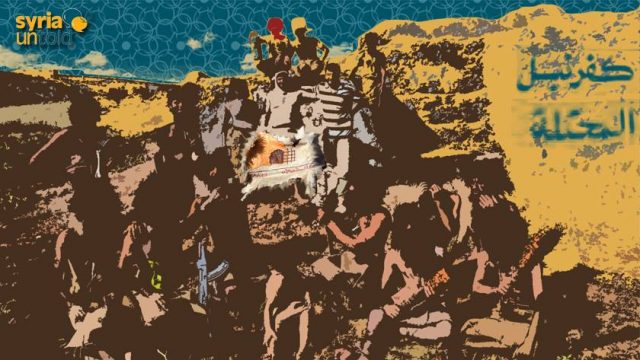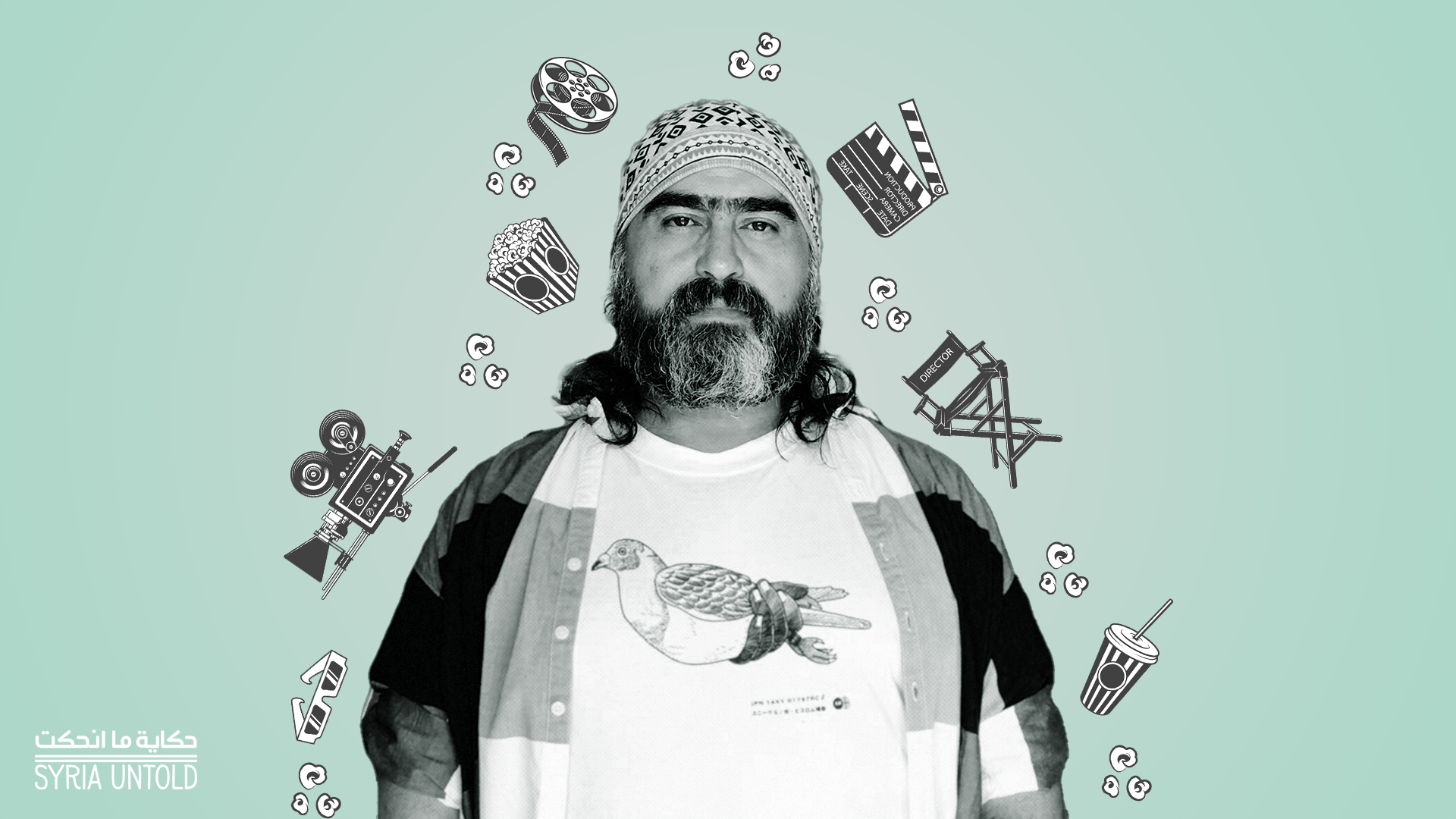The past decade have brought us feature films about the Syrian cause, but they have often been presented through the lens of asylum and the journey to reach Europe, while neglecting to address the perpetrators and the forces that expelled Syrians from their homeland. This omission reflects a broader political approach that views the Syrian issue primarily as a refugee crisis, disregarding the significance of those responsible for this forced displacement, which resulted from the regime's suppression of a popular uprising.
French director Jonathan Millet presents "Ghost Trail," a film filled with questions that deeply concern a wide range of Syrians about the meaning of accountability after years of suffering. The film offers a poignant portrayal with a sensitivity that avoids exaggeration, capturing the questions, dreams, fears, and desires of Syrians—especially regarding justice—in a way that is both relatable and compelling.
Millet, who has emphasized in interviews during the film’s premiere in the “Un Certain Regard” section of the Cannes Film Festival, spoke about his close connection with Syrians during the years of the revolution, both within Syria and in France. He aimed to create a film that transcends the stereotypical portrayal prevalent in media and political discourse, reminding audiences of the regime’s responsibility for the massacre, which forces Syrians to continue battling the echoes of the atrocities committed against them, even after their relocation to Europe.
Mohamad Al Roumi: Cinema is always necessary
11 March 2022
Millet initially planned to make a documentary, but he struggled to find the most appropriate and humane way to document the experiences of this group. He chose not to film refugees’ testimonies, to avoid exposing them to any harm or exploitation. Later, he was captivated by stories he heard about a secret group in Europe tracking down their former jailers. This inspired him to create a drama based on a true story, using narrative techniques to place the audience in the shoes of the film’s protagonist, Hamid, portrayed by the French-Tunisian actor Adam Bessa.
From the city of Strasbourg, we follow Hamid and a group of Syrians as they investigate in various locations, trying to uncover the true identity of a university student, played by the Palestinian actor based in the Netherlands, Tawfeek Barhom. They suspect that he might be the very person who tortured Hamid in the prison. Hamid discovers that the suspect uses multiple names and identities as he moves around Europe.
We don’t see this secret group, dedicated to tracking down Syrian war criminals who have arrived in Europe as refugees, meeting in person during the film. Instead, they communicate with Hamid through a video game, using its voice chat feature. Hamid, driven by relentless determination, is focused on uncovering his torturer's true identity. The video game, filled with combat, war, and soldiers, symbolizes the battles that Syria has endured and the heavy toll these conflicts have taken on the Syrian people.
What sets the filmmakers’ work apart here is their decision to avoid showing direct scenes of violence, including the torture that Hamid endured. Instead, they delve into the character’s emotions to convey this pain. Through close-up and focused shots, Adam Bessa’s face vividly reflects the suffering and torment Hamid experienced in Sednaya Prison. The film also conveys this agony through the voices in recordings of former detainees, capturing the immense terror faced by those who have endured such a harrowing ordeal.
The director effectively presents different aspects of the protagonist Hamid's character. While we see his determined quest for the truth, Millet also portrays his weakness and sense of being lost, depicted through the metaphor of ghosts that haunt him. As the title implies, Hamid is tormented by these ghosts, which obstruct his ability to lead a normal, peaceful life after all he has endured.
The film does not present Hamid as a hero or a mere victim; instead, it humanizes his pain in a fair and dignified manner, avoiding the exaggeration and stereotyping that have plagued portrayals of Syrian characters in drama for years. While the plot involves the pursuit between the detainee and his torturer, it is not the type of espionage chase seen in spy films. Rather, it is characterized by a calm and smooth narrative, steering clear of dramatic, police-style chases intended to captivate the viewer. This approach allows us to observe Hamid’s sorrow and exhaustion more intimately, with the additional tragedy of losing his wife and daughter in the war further compounding his suffering.
The film does not present Hamid as a hero or a mere victim; instead, it humanizes his pain in a fair and dignified manner, avoiding the exaggeration and stereotyping that have plagued portrayals of Syrian characters in drama for years.
The director also addresses the profound trauma endured by displaced individuals, which adds to the complexities of life in exile. Hamid’s conversations with his mother over video calls serve as a mirror, reflecting not only his own sense of alienation but also the broader estrangement experienced by many Syrians living in forced exile.
Although the film features non-Syrian actors in the leading roles, the director made a well-considered choice after a lengthy audition process, as he stated. Alongside Adam Bessa’s performance, which earned him the Best Actor award in the “Un Certain Regard” section at Cannes for his portrayal of a complex range of human emotions, Tawfeek Barhom stands out with a restrained performance that avoids exaggeration in demonizing the jailer. Despite his limited dialogue, Barhom skillfully portrays the confusion between his character’s present as a university student in a love story and his past involvement in brutal acts. The director’s excellent casting choices are also evident in other scenes, such as when Hamid sees his torturer embracing his lover, a stark contrast to Hamid’s inability to enjoy a similar life due to his haunting ghosts.
One of the film’s touching moments is when we see Hamid navigating the bureaucratic hurdles that refugees face. During this process, a staff member offers him a teaching job, to which Hamid responds, "Do you think I can do this job with what I’m going through?" Here, Millet and his co-writer Florence Rochat excel in crafting a dialogue that humanizes the refugee experience, countering the right-wing narrative that stereotypes refugees as lazy and dependent.
Finally, the budding mutual affection between Hamid and a Syrian refugee in France, portrayed by actress Hala Rjab, provides a glimmer of hope that resonates with the audience.
Positive Reception for the Film
This feature film, Millet’s first, received a positive reception from audiences at its premiere in Cannes in May/June of this year, with critics writing favorable reviews.
The film, a French-German-Belgian production, won the Visio Foundation Award for Best Screenplay at the Angers European Film Festival.
Previously, Millet directed several short and documentary films, including "We’ll Always Walk Along," which was nominated for a César Award by the French Academy of Cinema Arts and Techniques in 2018.
Amnesty International Supports "Ghost Trail"
Amnesty International's support and praise for the film was notable, as the organization highlighted in an article on its page that the film reflects the suffering of the Syrian people, including torture in prisons and killing.
The organization added that their support for the film "is a support for bringing thousands of victims of war crimes and crimes against humanity committed by Bashar al-Assad’s forces to justice."
In 2017, Amnesty International published an investigation into the violence and crimes against detainees in Sednaya Prison.










